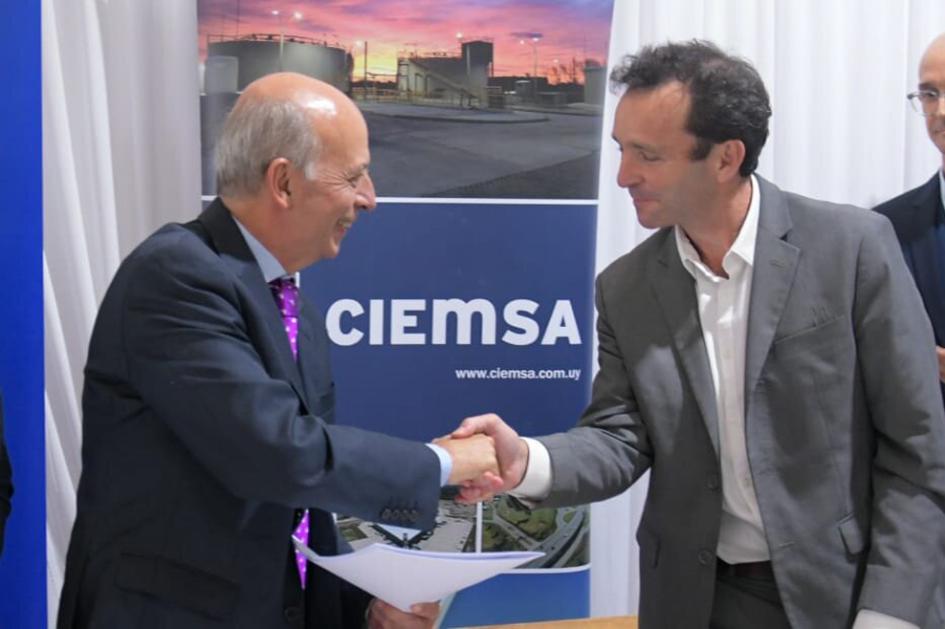
From the Ministry of Defense of Uruguay
Defense Minister Javier García and the authorities of the Ciemsa company signed this Monday the contract for the works on the new border crossing and the integrated control areas of Fray Bentos – parking, catering services, financial services, transport services and TLI.
The work will require an investment of $12 million plus taxes and will create approximately 240 direct and indirect jobs during the construction phase.
Minister García led the event in the NV, which was also attended by the Mayor of Río Negro Omar Lafluf, the Director General of the Ministry Fabián Martínez, the Deputy Director Cipriano Goñi, the Director of Paso de Frontera and the authorities of the Ciemsa company.
Minister García said that “a long-awaited moment has finally arrived for all the people living at the border crossing, but also for the entire population.” “Without a doubt. Firstly, because this is a sign that we are now entering the country “We want to see what we want, which is also the face of a modern, efficient Uruguay that welcomes the visit in a friendly manner,” he emphasized.
He claimed that “thousands of people pass here every day, foreigners, many Argentinians, but also logistics workers, truck drivers, and they are welcomed by a friendly, efficient, modern and clean border crossing, which in turn allows people to do so.” It works here, that a lot of people work, that truck drivers spend long hours, that there are catering and hygienic services, that it is comfortable. “Many people, I repeat it in thousands, this is the first photo of Uruguay, the first, and it is not good to see the facilities as they are because it is not the image that we have of Uruguay and want,” he said.
The minister assured: “When this is completed, they will find a modern system, with first-class facilities and, above all, comfortable, and they will be a little of the image of Uruguay that they will see later when they enter the country.” Country.”
He explained that “the entire work process will cost around 12 million dollars plus taxes, around 14 million dollars, it will also involve a significant amount of work.” The first 400 days, which is the first phase of the work, will be the construction of the entire parking lot mean, now there are a lot of people working in trucks, working in mud, on rough terrain, in dust and in unsanitary conditions large parking lot with services, all areas that are needed, gastronomic, financial, hygienic services, the duty Free shop, all in the first 400 days. And then later, in a few years, the whole part of the windows and offices, which will also be done later. They will work in an environment between direct positions, which will be around 60, plus 180 indirect positions, so around 240 jobs, and then, when this is fully operational, the environment of 80 people who will work here from the industry. private, plus all the people who work in public offices here,” he emphasized.
When asked if he believed in a system where the investment would be recovered by the company through a service concession, he replied: “Exactly.” There will be services here that do not exist today, so the truck driver, who can be here for hours, shower, feed himself, have a small restaurant, a deli, leisure activities, etc., and then there will be a system “We already approve a decree so that there is a period in hours that is free, and then, if those hours are exceeded, a fee is paid to access all of those services,” he said.
“We spoke to people who work in the industry, they told us we are prepared to pay what is paid across the region if there is a counterpart.” The counterpart, I’ve already said that, are services that can be accessed, as is the case in the regions, from the study that we have done in the regions where we have seen the need to charge this fee when staying for a long time, but also with the possibility of accessing things that are not accessible today and making the stay pleasant and dignified,” he concluded.

